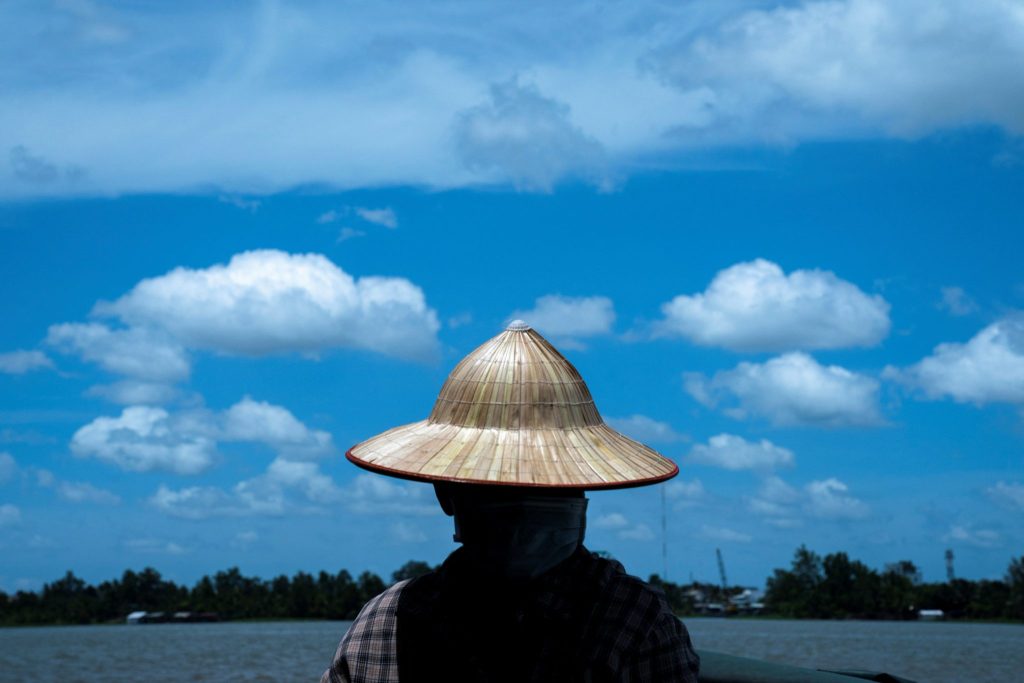Despite hopeful signs from the May 2023 Thai general election, the outlook for politics in the Mekong
region remains grim. Economically, Mekong countries have also struggled to recover their pre-pandemic
growth. The region continues to be a battleground in the struggle for geopolitical influence between the
United States and China.
Authoritarianism is deeply entrenched across the Mekong region. In Thailand, despite the landslide win of the youthful and progressive Move Forward Party in the May general election, the conservative establishment successfully prevented the party’s leader Pita Limjaroenrat from becoming prime minister.
Myanmar’s military has held its grip on power since the 2021 coup, escalating its campaign of repression against its own people and postponing the election that had been promised for August 2023. In Cambodia, Hun Sen officially handed over the reins of power to his son Hun Manet after his three decade rule. In Vietnam, the Communist Party of Vietnam under General Secretary Nguyen Phu Trong fortified its conservative stance through its anti-corruption campaign.
Beneath the apparent stability, signs of instability are brewing. In Thailand, the Move Forward Party’s historic electoral victory reflected widespread public dissatisfaction with the current political system and a yearning for change, particularly among younger voters. Laos has seen political instability and economic woes since Phankham Viphavanh resigned as prime minister in late 2022. In Vietnam, the forced departures of former president Nguyen Xuan Phuc and two deputy prime ministers in early 2023 weakened the communist regime’s collective leadership. In Myanmar, the November 2023 offensive by armed resistance groups shook the military’s power.
Instability in parts of the region has fuelled a surge in transnational crime, notably within Chinese-run scamming centres in Cambodia, Myanmar and Laos. The involvement of these centres in human trafficking and forced labour represents a significant non-traditional security risk.
Political uncertainty is compounded by economic concerns as export-led Mekong economies struggle to recover economically after the COVID-19 pandemic. Vietnam, usually the region’s best economic performer, experienced significant headwinds due to weak demand in its key markets, the United States and the European Union. The situation in Laos is dire, with a spiralling debt crisis and an inflation rate of 25.6 per cent as of October 2023, the second highest in the Asia Pacific after crisis-ridden Sri Lanka. Both Thailand and Cambodia have downgraded their 2023 growth forecasts, while Myanmar’s post-coup economy has unsurprisingly crumbled, contracting 12 per cent since 2021.
Given the economic and political background, foreign policy has emerged as a rare positive, with Mekong countries adeptly navigating relations with both the United States and China. Vietnam in particular has carefully balanced its strategic interests, benefiting from close relationships with both superpowers while minimising risk. In September 2023, Hanoi established a comprehensive strategic partnership with Washington, allowing it to become a reliable investment hub for Western companies in the middle of the United States’ ‘de-risking’ strategy.
Cambodia managed to ease tensions with the United States, particularly after its successful chairing of ASEAN in 2022, while it continued to strengthen ties with Beijing in trade and investment. Thailand has also mended its deteriorating relationship with Washington since the 2014 coup while continuing to play a significant role in the Myanmar crisis.
The Mekong region will face many uncertainties in 2024. Regional economies need to bolster domestic capacity to offset export declines. This means governments need to commit to structural reforms, improve infrastructure deficits, support the struggling private sector and boost domestic welfare.
Countries in the region must also promote better economic cooperation, avoiding competing against each other for low value-add FDI and seeking deeper integration into global supply chains. In this regard, initiatives such as the Cambodia–Laos–Vietnam Development Triangle Area should be extended to include Thailand and Myanmar.
Political stability may ultimately prevail in Thailand, Cambodia, Vietnam and Laos around newly formed governments and the firm control of governing parties, but the Myanmar crisis is not likely to disappear soon. With the Tatmadaw in its weakest position in perhaps half a century, regional mediators like Thailand will have to increase pressure on Naypyidaw to implement the five-point consensus negotiated in 2021. Vietnam as an aspiring middle power needs to take a more active role in resolving the crisis, while Laos must also step up as the 2024 ASEAN chair.
Beyond economic and political issues, the Mekong region faces transnational challenges that include badly managed hydropower development and the impact of climate change and rapid environmental deterioration. Mekong countries have pledged to transition to greener practices, but their actions must go beyond mere words. This will require a unified stand to deal with China on hydropower dams and greater involvement of non-state actors and the general public. Recent crackdowns on environmental civil society actors in Vietnam and Cambodia are not a positive sign.
In the long term, the region’s political elites need to understand that unlocking the potential of their populations is imperative to addressing these pressing challenges and moving the region towards a better future.
Nguyen Khac Giang is Visiting Fellow at ISEAS–Yusof Ishak Institute, Singapore.


The Mekong region continues to struggle with political authoritarianism and economic difficulties. While foreign relations have been unexpectedly strong, local economies are battling to recover following the COVID-19 pandemic and the Myanmar crisis is expected to escalate. Regional cooperation and reform are required to combat these issues, as well as additional transnational challenges such as climate change and uncontrolled hydropower developments.